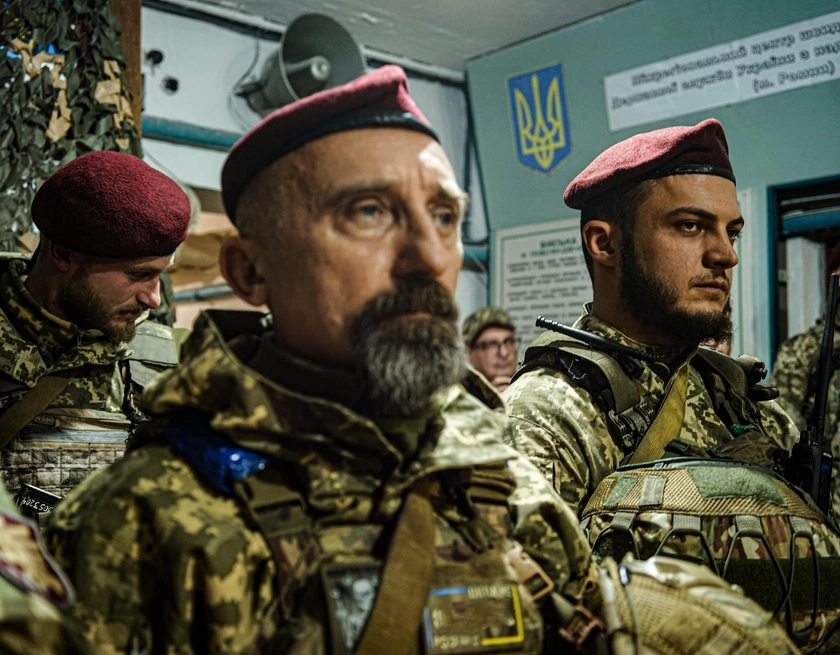Disentangling centuries of links and connections, however, is no easy task.
Nonetheless, the number of banned activities and items now includes Russian tea, milk, sweets, cosmetics, concerts of Russian bands and perhaps even the ultimate weapon, a prohibition on sex with Russians.
JOIN US ON TELEGRAM
Follow our coverage of the war on the @Kyivpost_official.
“The bar code for Russian goods begins with 46. Boycott the occupiers,” announcements on multiple social network pages announce.
Russian caviar, toothpaste, Russian-made sweets like Mars or Kinder Chocolate, mass market fashion brands like Oggi or Gloria Jeans are also among those on the boycott list. Even Russian banks made it on the list.
According to media reports, the boycott had its effect.
Quoting its own sources, Ukrainian news service TSN reported that sales of Russian goods in Ukraine have decreased 40 percent in the last two weeks.
Some aspects of the ban are harder to quantify than others. Ukrainian women are encouraged now to deny sex to Russian men in protest against the country’s military aggression.
The “sex boycott” began several weeks ago when a group of friends designed t-shirts with a semi-vulgar print picturing hands folded in a way that resembles female genitalia. A slogan reading “Don’t sleep with a Russian” is added. A t-shirt goes for Hr 250 at the initiative’s Facebook page.
Kateryna Venzhyk, chief editor of Delo.ua news site and one of the “sex boycott” initiative founders, said that “it was not about limiting anyone’s sexual rights, rather about bringing attention to human problems in Ukrainian crisis.”

87% of Ukrainians Say Russia Wants to Conquer More Territory Than It Already Has
“I am actually married to a Russian myself,” Venzhyk confessed with a giggle.
“We meant to do some real provocation. The logic was: let’s do something that will prompt everyone to ask why we did that. We wanted foreigners to look at the human side of the problem rather than economic and diplomatic.”
Since the project started on March 15, some 100 t-shirts were sold and journalists from more than 60 media outlets requested an interview, many of them from abroad.
Still not everyone is happy with the initiative. Its Russian Facebook page is full of angry comments.
“You will starve to death, stupid Ukrainian prostitutes,” wrote Facebook user Denis Zyryanov from Tyumen in Russia.
Anna Kholodnova, 24, a social media manager from Kyiv, said she had been boycotting Russian goods for just over a week. She confessed that she “never had a Russian,” so boycotting sex with them “has been the easiest part so far.”
Another boycotter, Eugeniya Serdiuk, 26, an accountant from Kyiv, said she “changed tea and coffee, chocolate, face cream, but I wouldn’t say it is difficult. It only takes one look at the bar code.”
The Android application “Boycott Occupiers” scans the barcode and identifies Russian and Ukrainian producers.
The boycott has even touched Russian music, forcing Russian performers to cancel or postpone shows that were not selling well.
“All the Russian bands that we are negotiating with do want to come, the other thing is that tickets are not being bought (for some Russian shows),” said Anna Davidenko of Konstantin-D concert agency.
Anait Avakova, an accountant from eastern Ukrainian city of Dnipropetrovsk, says she boycotts all Russian goods even though she used to be indifferent a few months ago.
“This boycott suddenly became a matter of honor,” Avakova said.
Kyiv Post staff writer Daryna Shevchenko can be reached at [email protected]
You can also highlight the text and press Ctrl + Enter











